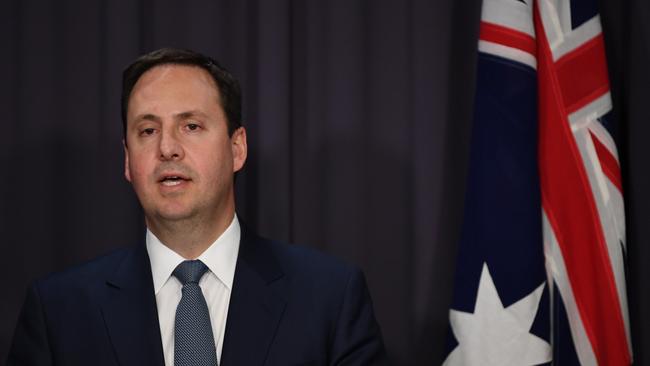China delays new food import rules
China has postponed regulations requiring an inspection certificate with each shipment of food products.

As China’s economy starts to slow, it is relaxing or postponing regulations in order to ensure that foreign investment and imports, eagerly sought by its growing middle class, continue to flow.
It has postponed the introduction of regulations that were to have required an inspection certificate to be provided by the Australian government with each shipment of food products.
The new rules, to be applied to all such imports from around the world, from raw commodities to processed foods, were to have come into effect yesterday.
But Beijing at the last minute granted a two-year transition period, following lobbying from the big food exporting countries including Australia, the US and the European Union.
China revealed its postponement through a notification to the World Trade Organisation.
Trade, Tourism and Investment Minister Steven Ciobo told The Australian: “We welcome China’s announcement of a two-year transition period before new food certification requirements take effect for all exporters.”
He said Australia respected China’s commitment to improving food safety: “We are committed to being a reliable food supplier to China, and will work closely with the food export industry and the Chinese authorities to ensure all imports requirements are met.” And during the transition period, “we will continue to work with Australian industry to identify and resolve concerns with new regulations.”
Beijing’s move to work more responsively with suppliers follows its decision last week to extend its grace period for the transition to new rules for cross-border e-commerce by a year, until the end of 2018, providing an assurance boost for many Australian exporters. That decision covered both the major CBEC routes: products shipped to approved bonded warehouses across China and then distributed by e-commerce platforms, as well as daigou goods bought in stores overseas, then sold on directly, through mail or freight services, to customers in China.
New food safety law was introduced in 2015, after a succession of scandals, mainly from local food products, dented consumer confidence in China’s regulators.
But the tougher new measures slated for October 1 appeared to show, according to the EU Chamber of Commerce in China, that the country was “replacing its risk-based food safety management system with a one-size-fits-all approach”, which was “not in line with international practice”.
This appeared to have been driven by a desire to shift some responsibility for food safety away from China’s Administration for Quality Supervision, Inspection and Quarantine — the regulatory agency that has been criticised by consumers.
On July 28, the government published its first “negative list” of sectors that excluded foreign investment, indicating those not listed should be open to Australian and other investors — a move also welcomed by Mr Ciobo.
A statement last week detailed its implementation in 2018, when a further list was foreshadowed, expected to preclude fewer areas from investment.
The list removes some sectors from restrictions — including allowing firms making electric cars or car parts from needing Chinese partners, allowing logistics firms to toll shipping and passenger transport, and allowing credit checking and rating services to operate. It further defines “encouraged” investments, as in building and operating carparks, and manufacturing “smart” medical equipment.
But it tightens controls in other areas, especially in media and cultural sectors, and in social science research, by placing them firmly in the “restricted” category.
It says that telecoms investments cannot go beyond what China has agreed with the WTO.




To join the conversation, please log in. Don't have an account? Register
Join the conversation, you are commenting as Logout